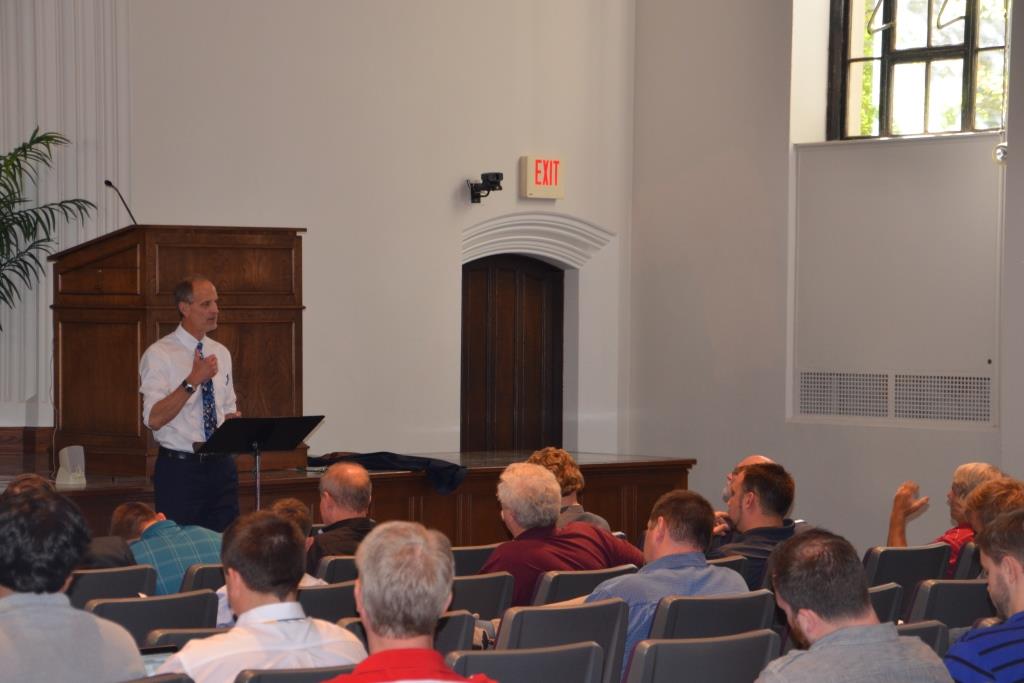
Editor’s Note: As another successful Theological Symposium came to a close this week, we thought it was timely to share Professor Jim Voelz’s thoughts on attending professional conferences.
The question inevitably arises: What is the value of attending scholarly meetings such as the annual Society of Biblical Literature national convention each November, and the one I attended in early August, the annual convention of the International New Testament society, held this year in Szeged, Hungary? It surprises even me what value they provide. There are, of course, personal connections that are forged and deepened, which has the effect of opening one’s own scholarship to others, and more widely, to the value of Concordia Seminary’s approach to textual interpretation. (Our institutional reputation is still being rebuilt after the disruption over 40 years ago.) In Szeged, a lengthy public interchange between Keith Elliott, the noted textual critic and Doktorvater of Jeffrey Kloha, and me after Kloha’s Main Paper on recommended procedures for NT textual interpretation, had quite a positive effect in such respects.
But perhaps more obvious are the knowledge and insights one gains. Sometimes it’s one of the lectures. This year the Presidential Address by Prof. Udo Schnelle of Halle, Germany, was outstanding. “Das frühe Christentum und die Bildung” put paid to the notion that early Christians were essentially a bunch of ignorant rubes, by detailing the insight and ability (if not formal training) recipients of Paul’s letters would have had to possess to understand his argumentation and to receive the impact of his rhetoric. Often, however, personal conversations are equally valuable. Let me detail two.
First, Klaus Wachtel, chief scholar at the University of Münster Institute for NT Textual Research, described for me the rather recently discovered Papyrus 127, which contains reasonably large sections of Acts. What is of special interest is that it has rather large variations to the standard (e.g., ms. B) texts of Acts in places where such variations also occur in the so-called Western Text (e.g., ms. D)—but the actual variants are different, not fully congruent, to the Western text! Wachtel, being German, immediately surmised that a prior source or Vorlage stood behind both, of which both P127 and ms. D were variations. But actually, this phenomenon confirms my long-standing opinion that ms. D is essentially a Targum-like treatment of the Greek of Acts that is not intended to be a strict rendering of that text at all. Rather, it is a kind of interpretive rendering in the Jewish mode, designed to add details and to help to explain difficult passages. And there were multiple Aramaic Targumim in Judaism, which generally commented in many of the same places on the Hebrew text, though very rarely in an identical way. (See Addendum 3-A of What Does This Mean? for good examples.)
Second was a conversation with a new acquaintance, Dr. Anders Runesson, a Swede teaching at McMaster University in Hamilton, ON, Canada. Runesson, an authority on the ancient Jewish synagogue and Jewish worship, argued strongly that the synagogue probably did not originate in the exile of Babylon but is a product of earlier times when elders sat in the city gate (the earliest synagogue in the Holy Land is probably at Gamla on the Golan Heights, in the first century BC). He also brought up the idea that temples probably existed outside Jerusalem after the Exile, especially in Egypt, possibly during the Second Temple period—an idea that certainly needs investigation.
So, yes, your professors do go to the national and international scholarly society meetings in their disciplines/fields. And to be honest, if one really engages and takes full advantage of presentations and opportunities for conversation, it is worth every penny.

Leave a Reply
You must be logged in to post a comment.